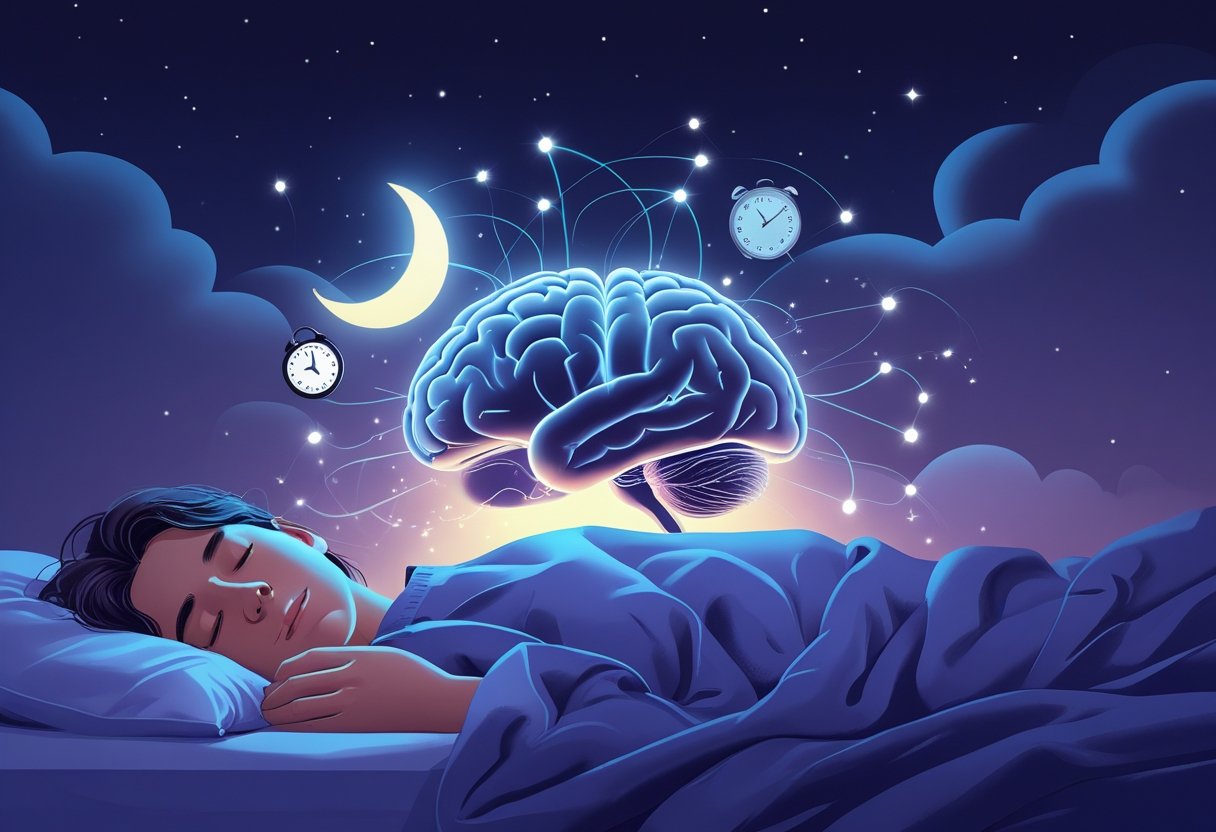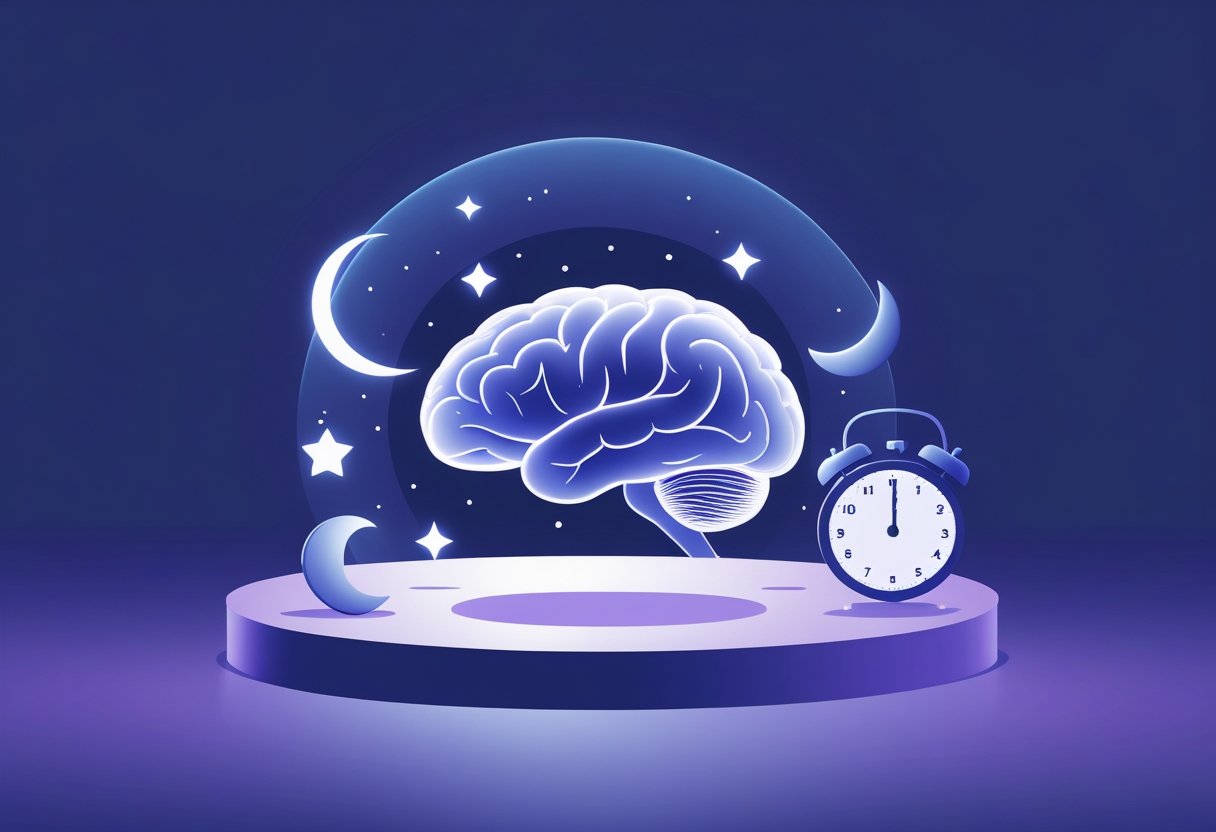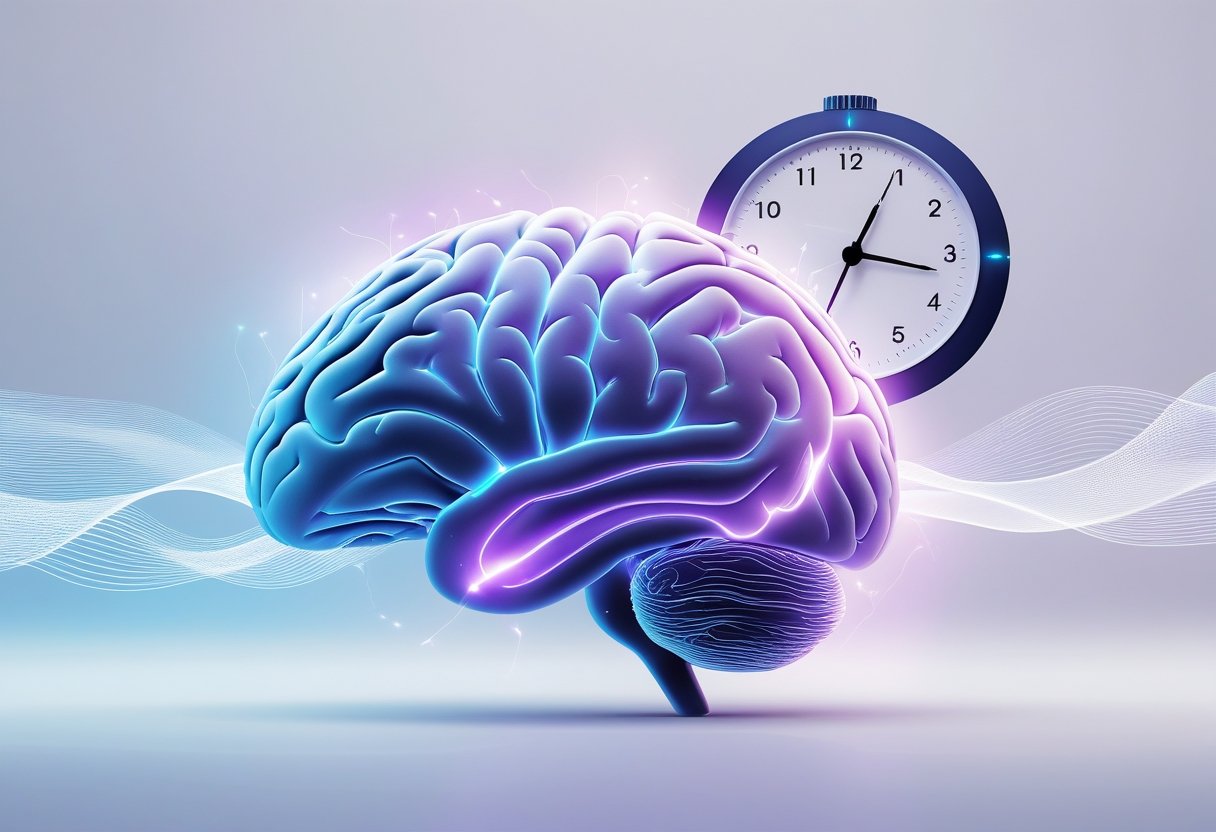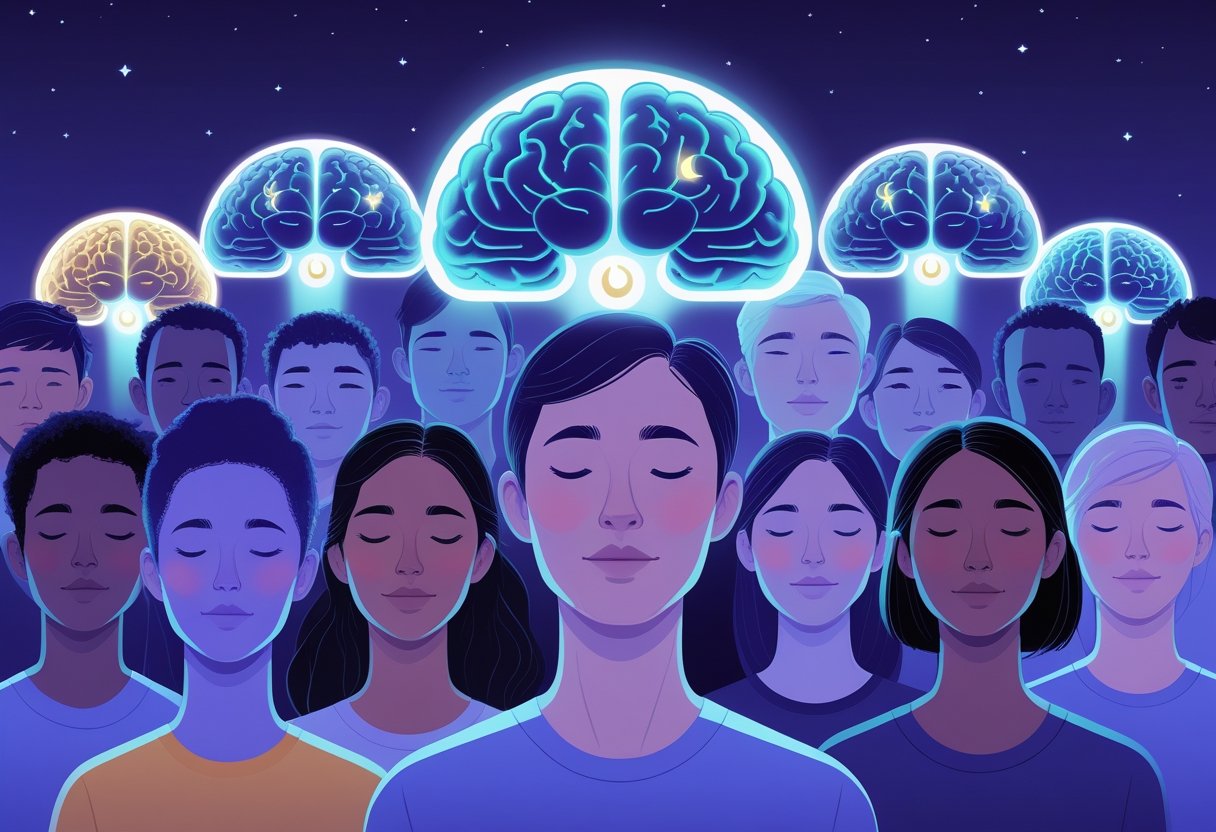The brain depends on sleep to function well. Although individual needs differ, scientific studies reveal that most adults require at least seven hours of sleep each night for optimal brain performance. Getting fewer than seven hours often causes issues with memory, concentration, and overall cognitive ability. Both insufficient and excessive sleep have been connected to reduced brain efficiency.
Sleep clears toxins from the brain, strengthens memories, and maintains emotional stability. When someone lacks adequate rest on a regular basis, their mental sharpness and decision-making abilities decline. Knowing how much sleep the brain needs allows people to make wiser choices about daily routines and health.
Some individuals might feel fine with a bit less or more sleep, though seven hours serves as a solid benchmark for most adults. Adjustments depend on factors such as age, lifestyle, and genetics. Understanding these needs enhances daily performance and supports long-term brain health, so monitoring sleep patterns becomes essential.
Key Takeaways
- Most adults require at least seven hours of sleep to maintain proper brain function.
- Sleep influences memory, focus, and emotional stability.
- While sleep needs differ, following general recommendations supports brain health.
- Choosing a mattress with the right firmness and support makes it easier to get the minimum sleep needed for optimal brain function, which improves memory, focus, and decision-making.

The Relationship Between Sleep and Brain Function

Getting enough rest is important in the brain’s ability to work well each day. Quality sleep supports key processes like memory, emotional control, and waste removal. Understanding how rest affects the brain shows why it remains necessary for both mental and physical health.
Why Sleep Is Important for Brain Health
Rest and brain health are closely connected since it helps the brain repair itself. During deep sleep, the brain clears toxins that build up during waking hours, which lowers the risk of disorders like Alzheimer’s. Strengthening connections between brain cells during rest supports memory as well. Without adequate sleep, recalling memories and learning new information become more difficult. Studies show that getting at least 7 hours each night promotes clear thinking and emotional balance.
How Sleep Helps the Brain
The brain processes and stores information more effectively with sufficient rest. While asleep, it organizes memories and discards unnecessary details, which boosts future learning and decision-making. Emotional control improves as rest works on areas like the frontal cortex, which regulates mood. Without enough sleep, this control weakens, causing mood swings or anxiety. Adequate rest helps maintain focus and mental sharpness throughout the day.
Brain and Sleep: Core Mechanisms
Several core mechanisms link brain function and rest. One involves the hippocampus, an area essential for learning and memory. Deep and restorative sleep supports the hippocampus by transferring information from short-term to long-term memory.
Another key mechanism is the brain’s waste clearance system, which becomes more active during rest. This system flushes out harmful proteins and chemicals, preventing their buildup from damaging brain cells and impairing thinking.
Key Brain Functions Supported by Sleep
- Memory consolidation
- Emotional regulation
- Toxin clearance
- Cognitive performance
These mechanisms show why getting enough rest remains essential for keeping the brain healthy and functioning at its best.
Minimum Sleep Requirements for Optimal Brain Function
Adequate rest remains vital for the brain to function well. The amount of rest needed depends on age and influences how effectively the brain processes information, stores memories, and maintains alertness. A lack of sleep harms attention, decision-making, and overall mental health.
Recommended Sleep Duration by Age
Needs for rest change throughout life. The National Sleep Foundation recommends the following daily hours for each age group:
- Infants (4-11 months): 12-15 hours
- Toddlers (1-2 years): 11-14 hours
- School-age children (6-13 years): 9-11 hours
- Teenagers (14-17 years): 8-10 hours
- Adults (18-64 years): 7-9 hours
- Older adults (65+ years): 7-8 hours
Most healthy adults require at least seven hours of rest to keep their minds sharp. Sleeping too little or too much can weaken cognitive abilities and negatively affect brain health over time.
The Effects of Sleep Deprivation on Cognitive Performance
When the brain lacks adequate rest, it struggles with focus, memory, and problem-solving. Sleep deprivation causes mental fatigue and slows reaction times. Studies show fewer than seven hours of rest can impair attention and increase mistakes. Chronic sleep loss over time may raise the risk of memory issues and reduce brain function. Emotional stability also suffers when rest falls short.
Insufficient sleep limits the brain’s ability to clear waste products and restore vital functions, which can eventually damage areas related to learning and decision-making. Maintaining healthy sleep habits supports brain health and daily mental performance.

Short-Term and Long-Term Consequences of Insufficient Sleep
Insufficient sleep affects brain function in many ways, both immediately and over time. It reduces the ability to focus, harms memory, alters mood, and raises the risk of serious brain diseases.
Impaired Attention and Memory
Lack of sleep quickly reduces attention and focus. Without enough rest, people struggle to stay alert and finish tasks. Sleep allows the brain to process and store memories. When sleep is too short or poor, the ability to learn and remember new information weakens. Sleep is also important in long-term memory consolidation. Studies reveal that repeated sleep disruptions interfere with these brain processes, leading to lasting problems recalling facts and skills. This decline in brain function affects everyday activities, school performance, and work efficiency.
Impact on Mental Health and Mood
Sleep problems undermine emotional stability and mental health. Sleep deprivation often causes irritability, anxiety, and depression. The brain’s ability to regulate emotions weakens without enough rest, which makes stress harder to handle. Poor sleep throws off the balance of chemicals in the brain, which affects mood. This can trigger a cycle where worsening mood leads to even poorer sleep. Over time, this raises the risk of mood disorders and further harms brain health.
Risks for Neurodegenerative Diseases
Chronic lack of sleep increases the likelihood of developing neurodegenerative diseases like Alzheimer’s and Parkinson’s. Sleep clears harmful proteins from the brain that build up throughout the day. Without enough sleep, these proteins accumulate and damage brain cells. Research connects ongoing sleep disruptions with faster brain aging and cognitive decline. Poor sleep weakens the brain’s repair systems, which makes it more susceptible to diseases that impair memory, thinking, and movement.
Sleep serves as a key protector of the brain throughout life. Prioritizing good sleep habits supports brain health and lowers the risk of serious brain conditions.

Biological Processes Linking Sleep and Brain Function
Insufficient sleep affects brain function in many ways, both immediately and over time. It reduces the ability to focus, harms memory, alters mood, and raises the risk of serious brain diseases.
Impaired Attention and Memory
Lack of sleep quickly lowers attention and disrupts memory. Sleep supports critical biological processes that keep the brain functioning properly. It repairs cells, balances chemicals, and removes waste. These actions maintain brain health while strengthening memory and learning.
Restorative Functions of Sleep
During sleep, the body activates processes that repair tissues and build new proteins. These functions help injured brain cells heal and keep neurons in good condition. Sleep also increases the release of hormones essential for growth and cell repair.
Muscle repair and tissue growth occur mainly during deep sleep stages, which highlights why sleep is crucial after physical or mental stress. The brain reorganizes during sleep, reinforcing neural connections needed for memory and learning. This restoration prevents brain damage over time. Without enough sleep, the brain struggles with memory, attention, and problem-solving.
Brain Detoxification and Waste Clearance
The brain relies on sleep to clear toxic waste products that accumulate during waking hours. A network called the glymphatic system activates only during sleep and circulates cerebrospinal fluid through the brain, removing harmful waste like beta-amyloid proteins associated with brain diseases. This cleanup lowers inflammation and protects neurons from damage. When the brain does not receive enough sleep, waste removal slows down, which can impair brain function and raise the risk of neurological disorders.
Keeping waste clearance efficient protects brain cells and preserves cognitive abilities over time.

Individual Variability in Sleep Needs

Sleep needs vary greatly between individuals because of many factors. These differences affect how well the brain functions and adapts to daily tasks. Understanding what alters sleep requirements helps identify when the brain lacks adequate rest.
Genetic and Lifestyle Influences
Genetics determine how much sleep each person requires. Some individuals need less sleep without experiencing negative effects, while others must get more to maintain healthy brain function. Genes control how the brain recovers during sleep and how it handles sleep debt.
Lifestyle factors also alter sleep needs. Stress, work hours, and exposure to light influence sleep patterns and the brain’s rest. People who engage in intense mental tasks often need additional sleep to clear brain waste and enhance memory. Older adults tend to need less sleep, yet their brain sleep quality can decline, which affects cognition.
Recognizing Signs of Insufficient Sleep
The brain shows clear indicators when it does not receive enough rest. Individuals with too little sleep face poor concentration, slower thought processes, and memory difficulties. These issues arise because essential brain functions that clear toxins and reinforce neural connections become disrupted.
Mood swings like irritability and trouble managing stress signal inadequate sleep as well. Physical signs such as daytime sleepiness and difficulty waking up occur frequently. Observing these symptoms allows people to adjust sleep habits to better protect brain health.
Strategies to Improve Sleep for Better Brain Function
Improving sleep directly supports brain health by enhancing memory, focus, and emotional balance. To achieve this, creating consistent routines and knowing when to get help are key actions for maintaining good sleep quality.
Establishing Healthy Sleep Habits
A regular sleep schedule strengthens the brain’s ability to restore itself. Going to bed and waking up at the same time every day helps set the brain’s internal clock. Avoiding screens and bright lights at least one hour before bedtime reduces stimulation to the brain, making it easier to fall asleep.
Creating a calm environment is also important. This means a quiet, dark, and cool room, which supports deep sleep phases vital for memory and learning. Avoiding caffeine and heavy meals close to bedtime can prevent sleep disruptions. Daily physical activity promotes better sleep but should not be done right before bed, as it can keep the brain alert.
When to Seek Professional Advice
If trouble sleeping persists for weeks, it may affect brain functions like decision-making and mood regulation. Consulting a doctor is necessary when sleep loss leads to daytime sleepiness, poor concentration, or memory problems.
Sleep disorders such as insomnia or sleep apnea can disrupt the brain’s ability to clean out toxins during sleep. A doctor can diagnose these conditions and recommend treatments like cognitive behavioral therapy or medical devices. Early support helps protect brain health and prevents cognitive decline linked to poor sleep.

Mattress Quality and the Minimum Sleep for Cognitive Health
A quality mattress is important in getting the minimum rest needed for proper brain function. A sleeping surface that feels too soft or too firm can disrupt rest and cause frequent awakenings. This disturbance affects sleep architecture, which supports memory, decision-making, and attention.
Studies show that firmness impacts how well a person sleeps and how refreshed they feel upon waking. Balanced support helps keep the spine aligned. This relief of discomfort makes it easier to achieve continuous, deep sleep necessary for cognitive health.
Different firmness levels suit various body types and sleeping positions. For example:
- Side sleepers usually benefit from a medium-soft surface to cushion shoulders and hips.
- Back sleepers usually need medium-firm support to maintain spinal alignment.
- Stomach sleepers tend to prefer a firmer surface to avoid lower back strain.
Finding the right mattress makes it easier to sleep long enough and stay comfortable through the night. The Brooklyn Bedding Aurora Luxe Cooling is a good example. It comes in different firmness levels and uses cooling technology that keeps the bed from getting too hot. The CopperFlex foam and cooling cover pull heat away so you can fall asleep faster and wake up less often.
You can choose soft, medium, or firm depending on how you like to sleep. This flexibility makes it easier to find the right balance of comfort and support. The mattress is also built to last and does a good job at easing pressure on sore spots. For anyone who wants reliable comfort and better sleep quality over time, it’s a solid pick.
Sleeping on a surface that fits your body and habits also helps with overall brain health. Good sleep supports memory, focus, and problem-solving. Pairing the right mattress with enough sleep time can even lower the risk of mental decline later in life.

Frequently Asked Questions
Sleep affects many aspects of brain function and body recovery. The right amount of sleep supports thinking, memory, and physical healing. Changes in sleep habits influence learning and overall health as time passes.







